MercoPress. South Atlantic News Agency
Economy
-
Thursday, February 18th 2016 - 06:57 UTC
S&P sends Brazil's credit rating deeper into junk territory; officials 'surprised'
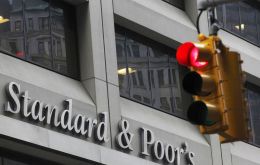
Standard & Poor's downgraded Brazil's credit rating deeper into junk territory on Wednesday, citing its failure to curb its fiscal deficit, in a surprise blow to President Dilma Rousseff`s bid to haul the economy out of its worst recession in decades.
-
Thursday, February 18th 2016 - 06:32 UTC
Punta Arenas expects to become homeport for an Antarctica cruise line
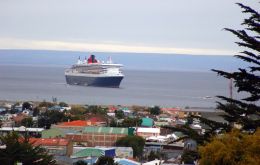
Punta Arenas in the extreme south of Chile is encouraged by the cruise industry prospects for its port and facilities: this season Norwegian Sun has returned with at least ten calls and for 2016/2017 a line will be cruising to Antarctica with Punta Arenas as a home port.
-
Wednesday, February 17th 2016 - 11:11 UTC
Pollack announces a new settlement with Argentine bondholders

The court-appointed mediator in the bonds dispute says Argentina has reached a settlement with bondholders seeking about 1% of the US$10 billion being pursued by investors. Mediator Daniel Pollack announced on Tuesday in New York the deal in the class action case. The deal came nearly two weeks after he announced two of six leading bondholders settled claims for more than US$1 billion.
-
Wednesday, February 17th 2016 - 11:04 UTC
Main oil exporters agree to freeze production, ...if all leading producers join
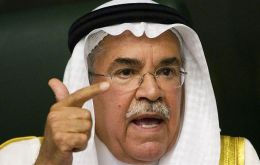
Four of the world's biggest oil-producing nations moved to freeze their production on Tuesday to try to halt the 70 percent drop in the price of crude because of a glut of oil on world markets. The agreement was reached by the oil ministers of Russia and three members of the Organization of the Petroleum Exporting Countries, Saudi Arabia, Venezuela and Qatar, during a closed-door meeting in Doha, the Qatar capital.
-
Tuesday, February 16th 2016 - 11:24 UTC
Brazilian economy prospects worsen, says central bank survey
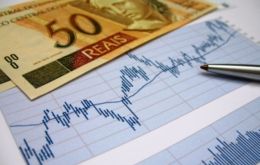
Analysts expect Brazil's economy to contract by 3.33% this year, with the outlook worsening from last week, the Central Bank said Monday. Last week, analysts said they expected Brazil's economy to contract by 3.21% this year.
-
Tuesday, February 16th 2016 - 07:43 UTC
Brazil will hold Olympic Games despite Zika, says president Rousseff

Brazilian President Dilma Rousseff said that the 2016 Olympic Games in Rio de Janeiro would take place despite the Zika virus, at a time when various athletes have expressed their fears about competing.
-
Monday, February 15th 2016 - 07:20 UTC
With Chinese New Year over, central bank reaffirms strong Yuan policy
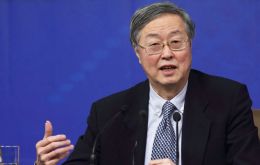
Chinese central bank governor Zhou Xiaochuan has accused “speculative forces” of targeting the country's currency, the Yuan, and argued there was no reason for the Yuan to keep depreciating in value and that China would not let international speculators dominate market sentiment.
-
Sunday, February 14th 2016 - 23:29 UTC
Illex 2016 Fishing Season begins in Falkland’s Waters.

Fishing for Illex squid in Falkland’s water took off on Sunday, as the 2016 fishing season opens. A total of 105 fishing licenses have been issued. The number of licenses issued has remained consistent for the past three seasons.
-
Saturday, February 13th 2016 - 08:34 UTC
Macri announces end of mining export duties campaigning for provincial support
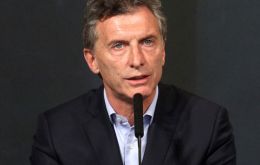
Continuing with his economic reforms Argentine president Mauricio Macri announced on Friday the elimination of export duties for metallic and non-metallic minerals during a visit to the province of San Juan, a key mining district in Argentina. At the announcement were present several other provincial governors with strong interests in the mining industry.
-
Saturday, February 13th 2016 - 05:40 UTC
Aurelius hedge fund “baffled” by Argentina's decision to 'continue litigation'
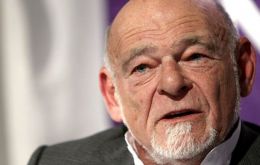
Hedge fund Aurelius Capital Management, one of the major creditors in the Argentine bond litigation who has not agreed to participate in a proposed $6.5 billion settlement, called Argentina's decision to return to court in the dispute “baffling.”
